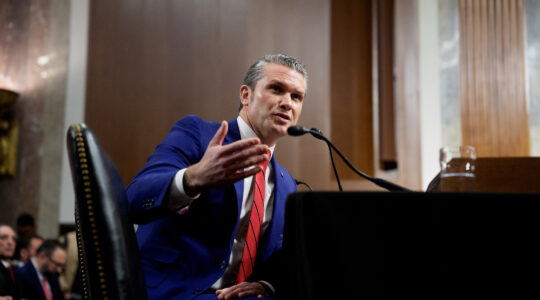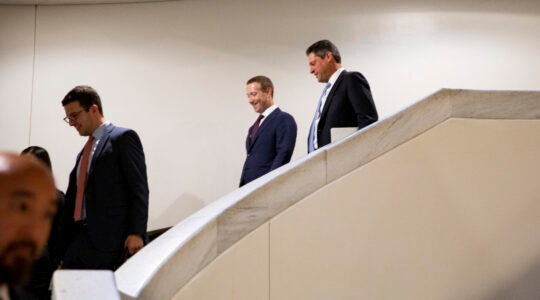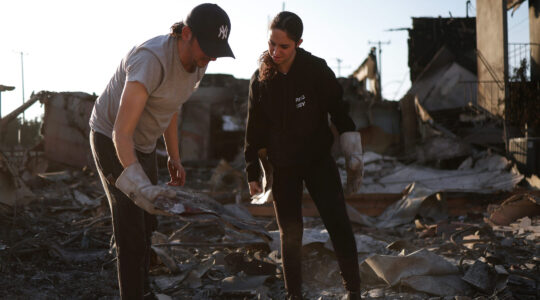JEDWABNE, Poland (JTA) — Jews from Poland and Belarus, representatives of Poland’s Foreign Ministry and Prime Minister’s Office, and residents of Jedwabne commemorated the massacre that took place there on July 10, 1941.
On that day, dozens of residents of the Polish town murdered hundreds of their Jewish neighbors. Most of the victims were burned alive in a barn.
The massacre was one of several that summer committed by ordinary Poles against Jews. Three days earlier, hundreds of Jews were murdered in Radzilow, also with more than half burned alive. A pogrom also took place in Wasosz and, that August, Poles murdered dozens of Jewish women in Szczuczyn.
“This is a place that demands respect, silence, recollection,” Anna Chipczynska, president of the Jewish community of Warsaw, said Thursday at the commemoration at Jedwabne. “It’s a moment of shared reflection, prayer, to commemorate what happened here in 1941. Those people for years were not mourned, not remembered. But now we mourn and remember. That what happened in 1941 still stirs our pain and terror.”
During the ceremony, rabbis and a priest offered prayers, and the names of victims were read aloud.
Piotr Kadlcik, president of the Union of Jewish Religious Communities in Poland, told JTA that it is important to work hand in hand with the residents of places like Jedwabne to make sure that these massacres are not forgotten.
“Our prayer is to remind the true extent of the tragedy that happened to the Jews of the small cities and towns,” he said. “We should work together with the residents of those places, not only on the occasion of anniversaries. It is worth to think what we can do together do for our common history.”
JTA has documented Jewish history in real-time for over a century. Keep our journalism strong by joining us in supporting independent, award-winning reporting.





